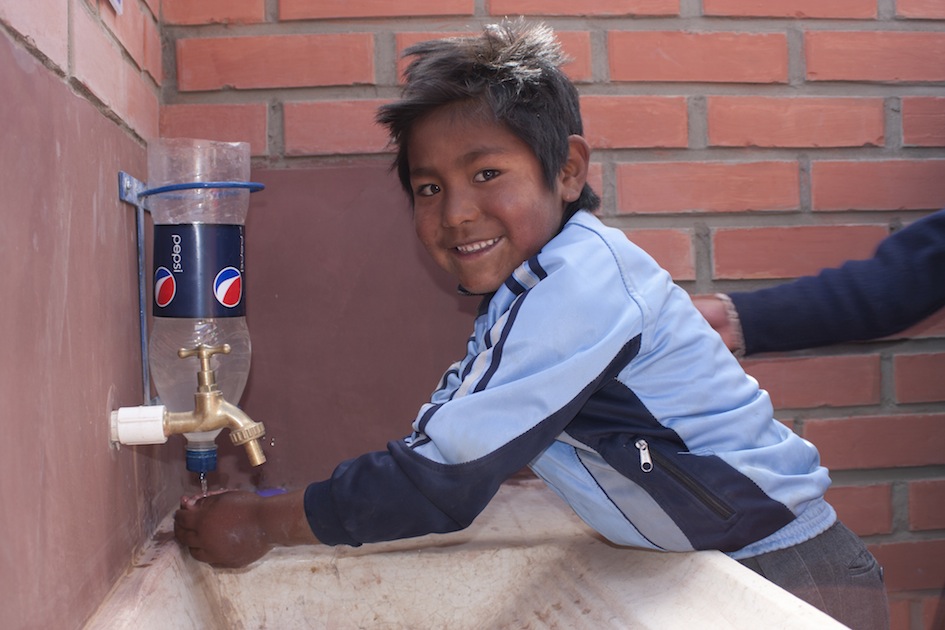The World Water Day is held annually on March 22 worldwide proposed during the United Nations Conference on Environment and Development held in 1992 in Rio de Janeiro. The United Nations General Assembly responded to the recommendation by designating 22 March 1993 as the first World Water Day.
In Bolivia according to the State Constitution, water is a most fundamental right to life under the sovereignty of the people. The state will promote the use and access to water based on principles of solidarity, complementarity, reciprocity, equity, diversity and sustainability.
In this understanding all Bolivians have the right to access to water, because it is a vital to the lives of people, animals and plants element, however it is important to mention that human beings have a responsibility to care for this finite resource.
Our planet is made up of three thirds water and one-third of land, which means that water covers about 70% of the planet’s surface, its distribution on the planet: salt water 97%, frozen water 2.5%, fresh water 0.5%. This means that only 0.5% of water is available for human consumption, found in rivers and lakes, If we put all the world’s water in a bucket only a serious teaspoon water available for human consumption.
Faced with this reflection the Sumaj Huasi “For healthy housing” Foundation is spreading alternative technologies in water, sanitation and Environment under the concept of Healthy Housing. In the city of El Alto has run the “Water and Sanitation for Areas Peri Urban City of El Alto, Applying Alternative Technologies” Project through ecological sanitation (construction of composting toilets), with the aim of contributing to improving the quality of life of low-income families, based on criteria of equity and social inclusion within the framework of the objectives defined in the National Development Plan of the Government and the Ministry of Environment and Water.
This technology does not require water to function in this way practice the rational use of water, it allows the separation of solid and liquid waste for treatment, the production of organic fertilizers are suitable for food crops and reforestation from treatment residues of organic baths.
With these principles of ecological sanitation, it constitutes a measure of adaptation to climate change, promote the rational use of water, preservation of the environment and the generation of organic fertilizers candle food security of the population.
Meanwhile Suntura Jannet, CEO of Sumaj Huasi has said it is important to know the amount of water that is wasted daily for excreta disposal to raise awareness and save this resource that is vital to the life of living beings. “With the sanitation drag water: water necessary for discharge of 5 to 10 liters, number of downloads 3 times a day per person, the discharge volume is 6 liters, amount of water per day, per person is 18 liters in a population of 40,000 water waste is 720,000 liters per day. However with ecological sanitation water is necessary to evacuate stool 0 liters “said Suntura.


Leave a Reply
You must be logged in to post a comment.